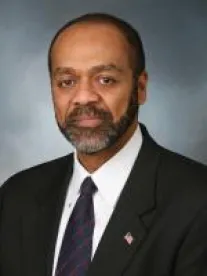It has not been lost on the Obama Administration that the average price of gas has now crept over $4.00 per gallon nationwide. It has been reported that rental car companies are charging as much as $9.00 per gallon to fill up when one of their vehicles is returned without a full tank of gas. As consumer complaints grow and the price of gasoline has become a regular feature on local and national news shows, the Administration, with an election looming, has made a decision to show the country that they hear what is being said.
Thus, the Administration decided to go proactive as a result of the growing gas price phenomenon. It has decided to act without any actual or verifiable complaint of a violation of the law being the cause of the higher gas prices. Nevertheless, in trying to appear ahead of any curve, on April 21, 2011, Attorney General Eric Holder announced the formation of the Oil and Gas Price Fraud Working Group. This collection of state and federal agencies is charged with monitoring the oil and gas markets for potential violations of the law. President Obama tasked the Attorney General in March to partner our federal agencies with their state counterparts to look at ways to monitor the oil and gas markets for evidence of price collusion, fraud, or manipulation of retail or wholesale gas prices.
The Working Group includes the Department of Justice, the National Association of Attorneys General, the Commodity Futures Trading Commission, the Federal Trade Commission, the Department of the Treasury, the Federal Reserve Board, the Securities and Exchange Commission, the Department of Agriculture and the Department of Energy. The Working Group was formed as a subcommittee of the Financial Fraud Enforcement Task Force, which was created to address financial crimes.
The Working Group is designed not only to address consumer concerns, but also to look at the role of traders and speculators in the oil futures markets. The Working Group does not have direct prosecutorial or civil enforcement authority, thus it will not become a "Special Prosecutor" type institution looking for cases that can be pursued in the name of their mandate. However, the Working Group will be looking to identify the most effective available criminal and consumer protection enforcement tools from around the country, and develop those into "best practices" that can be shared with state and federal agencies. The Working Group will also, probably, identify markets, regions or individuals that should be a focus of law enforcement or consumer protection agency investigations.
Now is a good time for those operating in the oil and gas industries to understand that a government microscope is aimed at their work. Compliance officers and general counsel may want to make sure that their compliance programs are in place and functioning as intended, as well as ensuring that their employees understand the importance of those programs and communicate with management when something seems awry. Since the Working Group has such a broad mandate in a very specific market, regular training programs for employees that remind them of the laws that affect their business are in order.
The Administration has made this announcement of the Working Group with the idea that if something other than normal market forces drive up the price of gasoline, the public should feel secure they will ferret it out. As a result, businesses should take the time now to look at their operations to make sure that their activities comport with the federal and state laws that regulate them.



 />i
/>i
